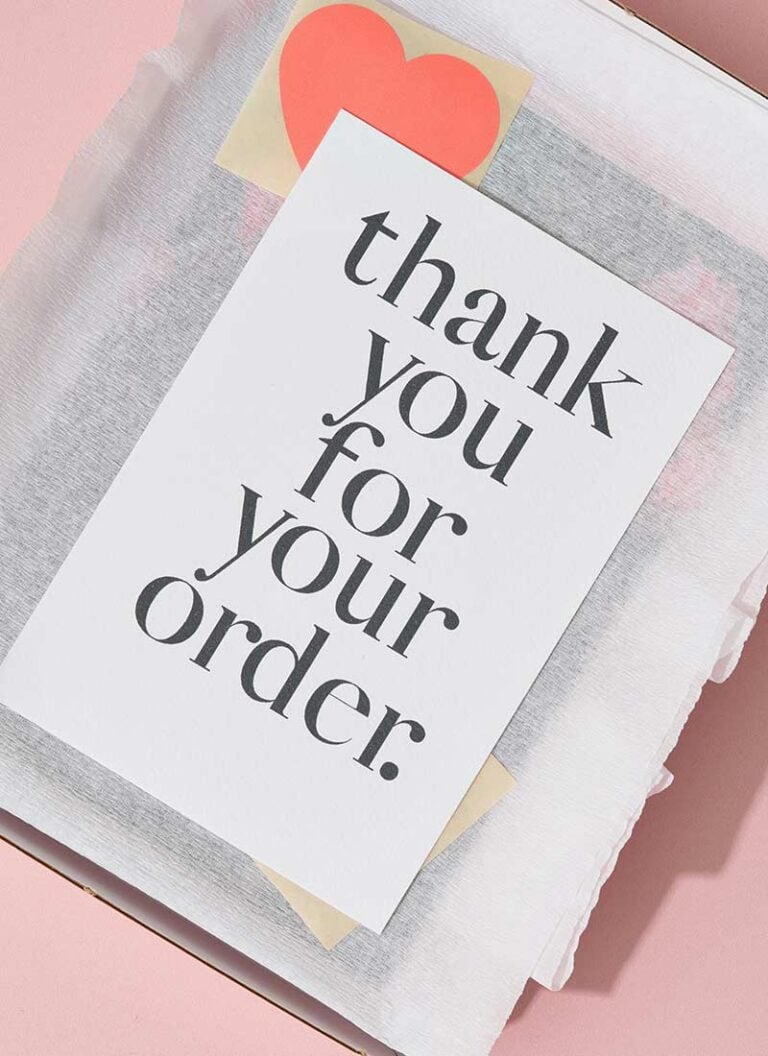When I first started selling digital products on Etsy, I had no idea what would work. But one thing changed everything for me: research. I didn’t just list pretty stickers and hope for the best, I used real keyword tools, trend trackers, and competitive insights to figure out what people were actually searching for. That’s how I ended up with over 1,300 sales after a few months, without shipping a single product.
Since then, I’ve tested (and ditched) a bunch of Etsy research tools. Some are amazing, some are totally overhyped, and a few… just waste your time and money. In this guide, I’m breaking down the best Etsy tools for finding trending products, discovering untapped niches, and optimizing your listings to actually get seen. I’ve combined my own experience with deep research and feedback from other real sellers, so if you’re trying to figure out which tools are worth it and how to use them, this is for you.
Let’s get into the Etsy research and SEO tools that actually help you grow your shop (and skip the fluff).
Table of Contents
- Why Etsy Research Tools Matter
- Quick Comparison Table
- Full List: Top Etsy Research Tools (with Pros & Cons)
- Free Tools vs. Paid Plans: What’s Worth It?
- Smart Strategies for Using These Tools
- Final Thoughts + Must-Know Resources
1. Why Etsy Research Tools Matter
If you want to make consistent sales on Etsy, data isn’t optional, it’s everything. These tools are how you stop guessing and start selling. They help you spot high-demand, low-competition product ideas before everyone else does. They show you exactly what keywords to use so your listings actually get found. You can spy on what’s working for top shops, track your own performance, and see where trends are heading.
They’re not magic wands, but they do give you a serious edge. And in a marketplace this crowded, that edge can mean the difference between crickets and cha-ching.
2. Quick Comparison Table
| Tool | Best For | Free Plan? | Strengths | Limitations |
|---|---|---|---|---|
| eRank | Beginners, SEO cleanups | ✅ Yes | Great free plan, shop audits, trending tags | UI feels dated, keyword grades aren’t always accurate |
| Marmalead | SEO and keyword overhauls | ❌ Trial Only | Clean UI, “Storm” keyword tool, long-tail optimization | $19/mo, mixed reviews on canceling |
| Alura | All-in-one shop + listing manager | ✅ Limited | Product/keyword research, listing helper, email tools | Can be buggy, SEO grader is intense |
| EtsyHunt | Deep product + shop data | ✅ Yes | Powerful research tools, trend tracking, shop analyzer | Not Etsy-certified, data may need cross-checking |
| EverBee | Trend spotting (POD + digital) | ✅ Yes | Chrome extension, real sales data, beginner-friendly | Limited features on free plan |
| Sale Samurai | Advanced keyword + niche targeting | ❌ Trial Only | Strong keyword map, competitor spy, holiday tools | Clunky UI, not beginner-friendly |
| Etshop | Full Etsy analytics + market insights | ✅ Trial | AI tools, shop analyzer, trending product library | Less intuitive UI, not as popular yet |
| InsightFactory | Trend-driven sellers (Etsy + TikTok) | ❌ No | Unique trends view, niche breakdowns, solid for early spotting | No free plan, less robust for keyword SEO |
| Keywords Everywhere | Etsy + Google keyword search volume | ❌ No | Real search data, browser-based, great for multi-platform sellers | More advanced, manual setup required |
3. Top Etsy Research Tools (With Pros & Cons)
Now let’s go through each of the tools in more detail.
eRank
If you’re just starting out, eRank is a solid place to begin. It helps you find trending keywords, audit your listings, and spy on top-performing shops. The free plan is surprisingly generous.
Best for: Beginners and budget-conscious sellers
Pros: Excellent free tier, shop audits, keyword tracking
Cons: Outdated UI, keyword grades can be misleading
Visit eRank here
Marmalead
Marmalead is all about Etsy SEO. You’ll get detailed data on search volume, engagement, and competition. The “Storm” keyword brainstorm feature is especially good when you’re stuck.
Best for: SEO-focused sellers with room to invest
Pros: Accurate search volume, helpful “Storm” tool
Cons: No free plan, hard-to-cancel subscriptions reported
Alura
Alura gives you everything in one place, keyword tools, listing grader, email marketing, product research, and even a Chrome extension. Great if you’re scaling.Alura gives you everything in one place, keyword tools, listing grader, email marketing, product research, and even a Chrome extension. Great if you’re scaling.
Best for: Sellers who want an all-in-one platform
Pros: Keyword research, product seeker, email tools, listing grader
Cons: Reported bugs, grading system can feel overly strict
EtsyHunt
EtsyHunt is a research powerhouse. You can see real shop data, keyword volume, trending products, and even review competitors. And yes,there’s a free plan.
Best for: Affordable all-in-one data + research
Pros: Powerful free tools, shop/product database, AI tools
Cons: Not officially affiliated with Etsy, some outdated data possible
EverBee
EverBee is a Chrome extension that shows real sales estimates, keyword demand, and what’s trending, right on Etsy’s site. Perfect if you’re into POD or digital downloads.
Best for: Chrome users focused on product trends
Pros: Pulls real Etsy data, great for POD/digital sellers
Cons: Limited features in free version, pricing jumps with growth
Sale Samurai
This tool is built for sellers who are deep into SEO and want serious keyword and tag insights. It even tracks holiday trends and competitor stats.
Best for: Advanced keyword analysis
Pros: Strong keyword data, niche tracking, good Chrome extension
Cons: Less user-friendly UI, limited free trial
Etshop
Etshop has tools for tracking bestsellers, analyzing shop growth, and monitoring keywords. Also comes with AI-powered suggestions.
Best for: Deep market and competitor analysis
Pros: Tracks shop performance, AI-powered product ideas
Cons: Pricing not transparent, UI less intuitive for beginners
InsightFactory
Want to ride Etsy + TikTok trends? InsightFactory shows what’s hot right now—and helps you build product ideas around it.
Best for: Trend-driven sellers, especially in fast-moving niches
Pros: Etsy + TikTok trend tracking, niche ideas
Cons: No free plan, more niche than general-use tools
Keywords Everywhere
This browser extension shows keyword volume directly in Etsy’s search bar and everywhere else on Google. Great if you sell across multiple platforms.
Best for: Etsy SEO + Google search volume tracking
Pros: Pulls real-time search data, browser-based
Cons: Designed for advanced users, needs setup
4. Free Tools vs. Paid Plans: What’s Worth It?
Here’s the truth, you don’t need to drop $30/month just to run a solid Etsy shop. Most of the big tools offer free versions that are honestly good enough for regular use. And when you’re prepping for a big SEO overhaul or launching a new product line? That’s when it’s smart to grab a paid plan for a month or two, do the deep work, then cancel until you need it again.
I do this all the time, rotate between tools based on what I’m working on. It saves money and keeps you focused.
Best free tools to start with:
- eRank – great for keyword audits, shop health, and seeing what needs fixing fast
- Alura – great for understanding what works, finding popular products, and discovering top shops.
- EtsyHunt – tons of trend + competitor data you can use right away
- EverBee (Chrome) – super helpful for spotting product ideas and checking what’s really selling
Start lean, get smart, and upgrade only when it actually makes sense.
5. How to Use These Tools Effectively
Getting the tools is the easy part, knowing how to use them is what actually moves the needle. Start with keyword research. Don’t just guess what people want, use these tools to see exactly what buyers are typing into the search bar. Then look at top sellers in your niche. What’s trending? What colors, styles, price points? And how can you make it your own?
I always test ideas before going all in. Whether it’s a single sticker pack or one new t-shirt design, I’ll put it out there, tweak based on views, and adjust from there. And I never rely on just tools alone – real feedback from buyers + Etsy shop stats are just as important.
What’s worked best for me (and other sellers I’ve talked to): combining tools like Marmalead or InsightFactory with Pinterest trend research and regular listing updates. That combo? Powerful. And I also love checking keywords on Ahrefs, even though it’s a tool for google SEO, it’s a strong estimation for understanding what people are looking for to buy online.
6. Final Thoughts + Must-Know Resources
- Etsy Seller Handbook – discover interesting stories and tips
- How to Drive Pinterest Traffic to Your Shop
- How to Start an Etsy Shop
At the end of the day, Etsy tools aren’t magic, they’re just powerful helpers. They give you the data, but it’s up to you to take action. The more you learn how to read the numbers, spot trends early, and tweak your listings, the better your results will be.
Start simple. You don’t need every tool on this list. Pick one or two that match where you’re at right now, test product ideas, and get comfortable using the data to make smart decisions. Then layer in more when you’re ready to scale.
And remember, I didn’t hit over 1,300 sales by luck, it was keyword research, trend tracking, product testing, and a whole lot of tweaking along the way. You’ve got this.
If you want more behind-the-scenes tips like this, make sure you’re on my email list, I send all the good stuff there.







